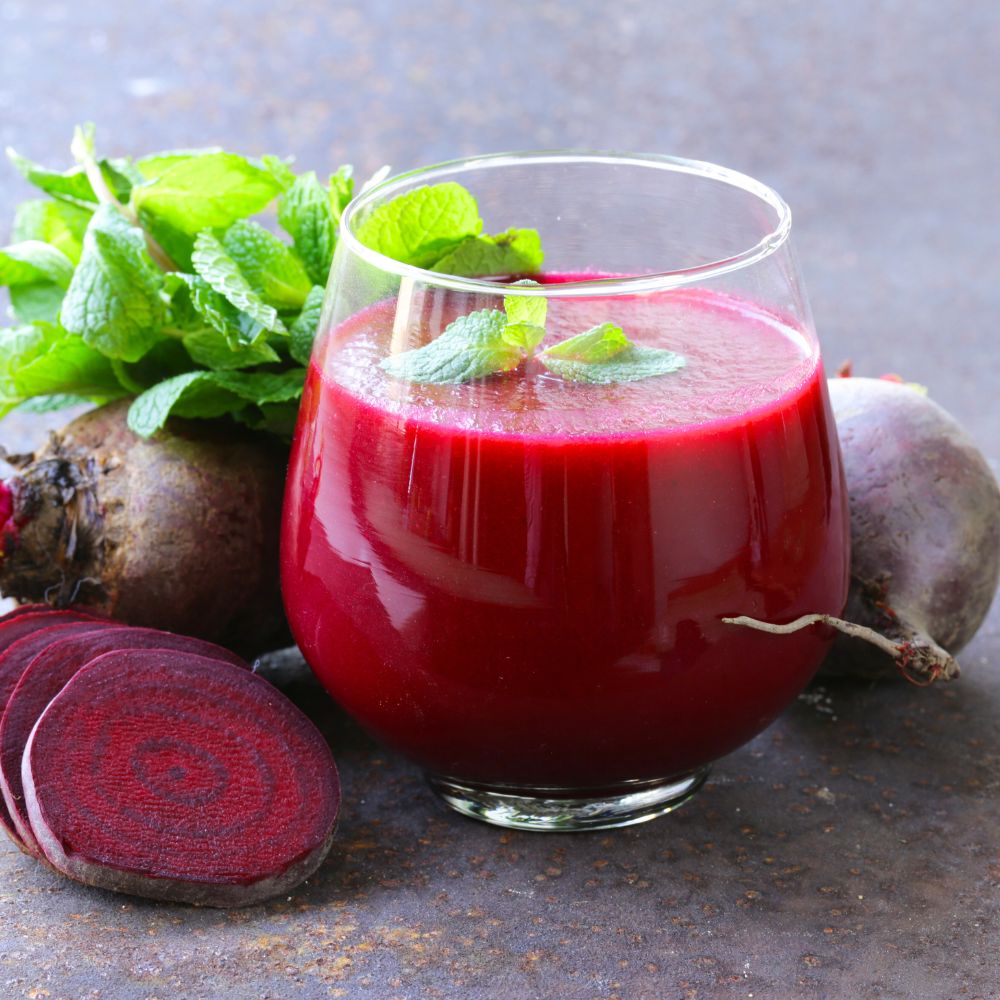Nitric oxide (NO) is a crucial molecule that supports various physiological functions, including improved blood flow, regulated blood pressure, and enhanced exercise performance. As we age, our ability to produce nitric oxide may decline, making it vital to include certain foods in our diet that can naturally boost its levels. Here’s a look at the best foods for increasing nitric oxide, along with tips on how to consume them for maximum benefits.
1. Leafy Greens
Best to Consume: Fresh and raw.
Leafy greens such as spinach, kale, arugula, and Swiss chard are rich in nitrates, which the body converts into nitric oxide. To maximize their benefits, try incorporating them into salads, smoothies, or as a side dish. Lightly steaming these greens can enhance their nitrate content while making them easier to digest.
2. Beets
Best to Consume: Roasted or as juice.
Beets are one of the richest dietary sources of nitrates. For optimal nitric oxide production, roast beets to bring out their natural sweetness or enjoy beet juice, which can rapidly increase NO levels. Consider adding beetroot powder to smoothies or energy drinks for a pre-workout boost.
3. Garlic
Best to Consume: Raw or lightly cooked.
Garlic is a powerful ally for nitric oxide production due to its compounds like allicin. To retain its beneficial properties, consume garlic raw by adding it to dressings or dips. If cooking, try to keep it at lower temperatures and add it toward the end of the cooking process to preserve its nutrients.
4. Citrusy Fruits
Best to Consume: Fresh and whole.
Citrus fruits like oranges, lemons, and grapefruits are high in vitamin C, which helps protect nitric oxide from oxidative damage. To maximize their benefits, eat them fresh or add them to salads and smoothies. Squeeze fresh lemon juice over dishes or drink citrus-infused water for a refreshing boost.
5. Nuts and Seeds
Best to Consume: Raw or lightly roasted.
Nuts and seeds, especially walnuts and flaxseeds, are rich in arginine, a precursor to nitric oxide. For the best effect, consume them raw or lightly roasted, as high temperatures can degrade their nutrients. Sprinkle flaxseeds on yogurt, oatmeal, or salads, and enjoy walnuts as a snack or added to meals for extra crunch.
6. Dark Chocolate
Best to Consume: High-cocoa varieties (70% or more).
Dark chocolate contains flavonoids that can enhance nitric oxide production. To reap the benefits, choose high-quality dark chocolate and consume it in moderation. Enjoy a small piece as a treat, or incorporate cocoa powder into smoothies and oatmeal for a delicious antioxidant boost.
7. Pomegranate
Best to Consume: Fresh seeds or juice.
Pomegranate is rich in antioxidants and known to enhance nitric oxide levels. For the best results, eat the fresh seeds, which provide fiber and additional nutrients, or drink pure pomegranate juice without added sugars. Add pomegranate seeds to salads, yogurt, or grain bowls for a colorful and nutritious touch.
8. Watermelon
Best to Consume: Fresh and chilled.
Watermelon is high in citrulline, an amino acid that converts to arginine and subsequently nitric oxide. To enjoy its full benefits, eat it fresh or blend it into a refreshing juice. Watermelon can also be added to salads or smoothies for a hydrating boost.
Top Foods That Boost Nitric Oxide Levels
| Food | Key Compound | Best Way to Consume |
|---|---|---|
| Leafy Greens | Nitrates | Fresh in salads or lightly steamed |
| Beets | Nitrates | Roasted, juiced, or as powder |
| Garlic | Allicin | Raw or lightly cooked |
| Citrus Fruits | Vitamin C | Fresh, whole, or as juice |
| Nuts & Seeds | Arginine | Raw or lightly roasted |
| Dark Chocolate | Flavonoids | 70%+ cocoa, in moderation |
| Pomegranate | Antioxidants | Fresh seeds or 100% juice |
| Watermelon | Citrulline | Fresh or blended into smoothies |
Conclusion
Incorporating a variety of foods that boost nitric oxide levels into your diet can significantly enhance your overall health, improve circulation, and support athletic performance. By consuming leafy greens, beets, garlic, citrus fruits, nuts, dark chocolate, pomegranate, and watermelon in the most effective ways, you can optimize their ability to raise nitric oxide levels naturally. Alongside a nutrient-rich diet, maintaining hydration and engaging in regular physical activity will further support your body’s nitric oxide production and promote cardiovascular health.
Frequently Asked Questions (FAQ)
Nitric oxide is a molecule produced in the body that helps relax blood vessels, improve circulation, regulate blood pressure, and enhance exercise performance.
Beetroot and beet juice are among the fastest-acting foods to boost nitric oxide due to their high nitrate content. Effects can occur within hours of consumption.
Yes. Eating nitrate-rich vegetables, fruits high in vitamin C, and foods containing arginine or citrulline can naturally boost nitric oxide levels.
Nitric oxide increases blood flow and oxygen delivery to muscles, which can help them heal faster from workouts and have more endurance.
Generally, these foods are safe when eaten in moderation. However, excessive consumption of beet juice or leafy greens may cause digestive issues in some people.
Products That Support Nitric Oxide Levels
In addition to eating nitric oxide–boosting foods, certain products can help enhance your body’s natural production.
Beetroot powder or juice provides nitrates to support healthy blood flow and cardiovascular health.
L-Citrulline supplements supply an amino acid that promotes nitric oxide synthesis and may improve exercise performance and recovery.
Aged garlic extract is valued for its heart health benefits and its ability to encourage nitric oxide production.
Dark chocolate with 70% or higher cocoa content contains flavonoids that support nitric oxide levels while offering antioxidant benefits.
Vitamin C supplements help protect nitric oxide molecules from oxidative damage, ensuring they remain effective in the body.
Consult a healthcare professional before starting any new supplements.
Affiliate Disclaimer:
The links above are affiliate links, which means we may earn a small commission if you make a purchase through them—at no extra cost to you.

